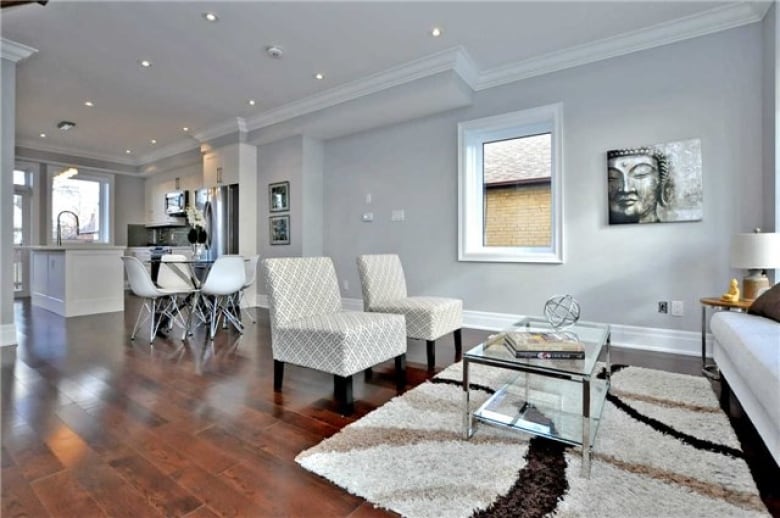Why some Toronto realtors are paying for your moving and staging costs
From free services to advertising blitzes, GTA realtors going all out with active listings at record low

With supply in the ultra-tight GTA housing market at a record low, many realtors are being forced to find creative — and often expensive — ways to secure precious listings.
But the effort can lead to a big payoff. The average selling price of a home in the GTA now sits at $770,745, according to the Toronto Real Estate Board. That number is expected to top $820,000 by this time next year.
As prices continue to soar — the year-over-year increase for January was 22.3 per cent — the challenge for many realtors is convincing would-be sellers that now is the time.
-
Toronto housing sales up 12 per cent year-over-year in January: TREB report
-
New mortgage rules fail to cool GTA housing market as prices spike in the 'burbs
-
GTA house price 'spillover' driving up prices as far away as Sudbury, Ottawa: CMHC
"What my team specializes in is hitting record prices," Sai Tirulokan, a sales representative with Public Choice Realty, said in an interview.
Tirulokan says with the potential for more double-digit price growth on the horizon, sellers have high expectations and if they can't be met, many will just choose to wait it out.
Sell or develop?
An approach Tirulokan is using for some properties, often older homes with the potential to renovate or rebuild, is what he calls a "joint venture" between the homeowner and developer.
"They have an agreement in place where after the property sells, after the development is done, they share the profits," Tirulokan said outside of a Rushton Road home in Toronto he's attempting to sell using this method.

The 1950s bungalow sits on a large lot and could work as a "tear down, top-up or complete gut-job," Tirulokan says. But instead of listing it, he's shopping the home around to his network of developers and builders, looking for a partnership.
"The builder will bring their expertise, go get their permits, their approvals, they'll get the architectural drawings, and the seller will just sign off on it."
After the home is rebuilt and sold, the developer will get a cut of the sale price.
Maximum exposure
In contrast to this tightly focused sales approach, is the "maximum exposure" Toronto broker Frank Leo strives for.
It begins with an extensive branding effort to bring in listings, including heavy-rotation ads on TV and radio, flyers, and outdoor billboards.
"You have to do it consistently," Leo said in an interview. "If someone is not advertising, they're not doing their job."

It isn't cheap. Leo says his marketing budget is "hundreds of thousands, if not millions of dollars."
Once he secures listings, Leo advertises them extensively, aiming to bring as many potential buyers into the home as possible.
"If it's not exposed to the masses, the seller can be losing a tremendous amount."
Free services
Some realtors are offering up services free of charge as an added incentive to list with them.
Tirulokan has paid for staging some properties, which can cost up to several thousand dollars depending on the size of the home.
He also says moving expenses are sometimes covered by realtors.

And, similar to the "joint venture" with a developer, some realtors will front the costs of renovations to a home in order to hit a higher price.
Tirulokan says simply offering to get a house sold quickly isn't enough in this market
"It's all about brainstorming and coming up with new ideas."
Word of mouth
Still, the dearth of available properties hasn't changed one of Toronto realtor Alexandra Cote's most reliable strategies for getting new business: referrals.
"I don't really advertise," Cote said in an interview.
She has a background in counseling and says she focuses on "coaching" and "supporting" her clients.
"At the end of the day it's a relationship business. That's my philosophy. I don't see it as sales, I see it as helping."
Cote says that while new listings are often the most sought after real estate business, she focuses on buying and building a relationship with clients through that process.
"I kind of work opposite. I say let's buy first, that's where all the work is, then we'll sell your home. I try to help people."